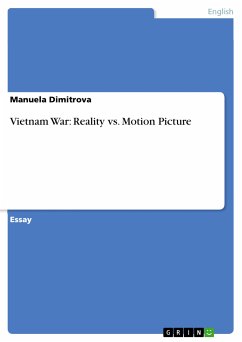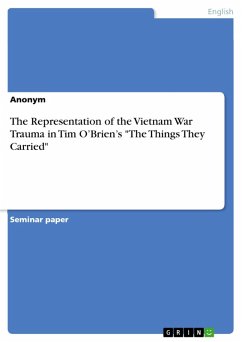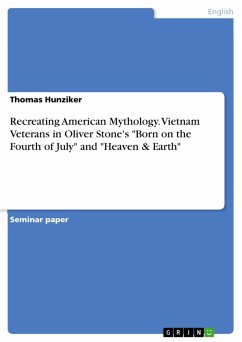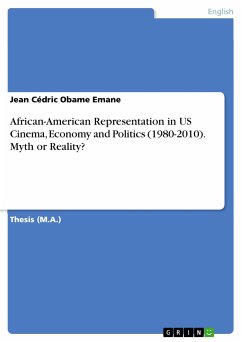Essay from the year 2004 in the subject American Studies - Culture and Applied Geography, grade: 1,5 (A), LMU Munich, course: Landeskunde USA, language: English, abstract: During this century the United States has fought four major wars--World Wars I and II, the Korean conflict, and the Vietnam War. The Vietnam War, by far the longest and most divisive of these actions, forced Americans to confront a series of national moral and political dilemmas. It challenged the role of the United States in the world and raised grave questions about how wars should be conducted. The issue of a citizen's obligation to his country during wartime became an acute moral problem for many Americans. The decade long Vietnam War(1964 - 75) was called by some observers "Johnson's War", but President Kennedy had significantly deepened U.S. involvement in Vietnam, where the North assisted the Vietcong in the South to advance the reunification of the country under a Communist government. It was Lyndon B. Johnson who Americanized the war. For the U.S. proved to be the most damaging one they had ever fought. Washington threw its young men and national wealth into a war it could not and did not win in a country it did not understand. More than 58 000 Americans and some 1, 5 million Vietnamese died; civilian deaths in Cambodia and Laos numbered in millions; it cost the U.S. at least $170 billion and billions more would be paid out in veterans' benefits. The nation suffered inflation, retreat from reform, political schism, violations of civil liberties, abuse of executive power. The post-traumatic stress disorder befell thousands of the 2, 8 million Vietnam veterans, making their lives a living hell (* Norton: 2001).And all this for what? The "arrogance of power" made Americans like Johnson believe they could run the world. Growing numbers of people were troubled by the Americanization of the war, especially as television coverage brought it into their homes every night. Veterans publicized their deteriorating health. Feature films on the subject became very popular. Movies like Coming Home(1978), The Deer Hunter(1978), Apocalypse Now(1979), Platoon(1986) and Born on the 4th of July(1989) showed the soldiers' Vietnam, but did they show also the real war as it was, or did they only present the "convenient" side of the conflict? People tend to close their eyes when things are not as they would like them to be; in the film industry this is especially true.
Dieser Download kann aus rechtlichen Gründen nur mit Rechnungsadresse in A, B, BG, CY, CZ, D, DK, EW, E, FIN, F, GR, HR, H, IRL, I, LT, L, LR, M, NL, PL, P, R, S, SLO, SK ausgeliefert werden.









